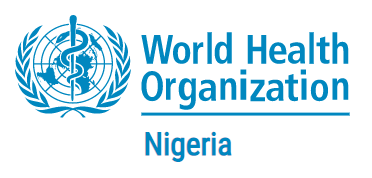On a recent Tuesday, Fatima Alhaji Mohammed and three other health workers arrived in Garmiri Village, Magumeri Local Government Area, Borno State.
They were part of the World Health Organization’s (WHO) mobile, hard-to-reach health team dedicated to delivering essential healthcare services to underserved communities.
As the team were setting up, a man interrupted them, pleading for help for his wife, who had been in labour for over a day.
Being a nurse, Fatima immediately rushed to their house. She quickly assessed the wife and realised she was in active labour and needed help urgently. “I knew I had to deliver the baby,” Fatima explained. “There was no time; the closest clinic was over six kilometres away, and the villagers could not get there quickly. Anything could have happened to the mother or her baby.
A Safe Birth, a Strong Start
Because the WHO team was present, the newborn immediately received the crucial vaccinations often missed by babies born at home in these areas. Within minutes after her birth, she was vaccinated against tuberculosis (BCG), polio (OPV zero dose), and Hepatitis B (Hep).
“Every birth is a miracle, and I’m so happy we could help,” Fatima said. “Moments like that remind me why I do this work – providing safe delivery and disease protection through vaccination in remote places. Since birth, we have been following up regularly to ensure the child’s vaccination is up-to-date, ” she added.
Reaching the Unreachable
With funding from partners like the European Commission (ECHO) and others, WHO has supported essential health services in hard-to-reach and insecure communities in Borno, Adamawa, Yobe, and Benue States for over a decade. Working with the BAY state governments, WHO trained and deployed 35 mobile health teams of doctors, nurses/midwives, community health workers, and others.
These teams were a lifeline in areas with limited or no healthcare access, providing crucial services like antenatal care, routine immunisations, and basic medical care to those beyond the reach of clinics, often in communities more than seven kilometres from the nearest facility.
Professor Baba Mallam Gana, the Borno State Commissioner for Health and Human Services, emphasised WHO’s vital support: “The Borno State government is dedicated to improving the health of our people, especially women and children. WHO has been a valuable partner through mobile health teams and other initiatives, helping us strengthen our health system and reach the most vulnerable. We recognise that a healthy start is key to a brighter future and work tirelessly with WHO to achieve this.”
Healthy Beginnings, Brighter Futures
“From policy to practice, WHO actively supports governmental efforts at all levels to prioritise safe motherhood and ensure a healthy start for all newborns, said Dr Kumshida Balami, the WHO Nigeria Acting Emergency Manager.
“Championing safe mother and child healthcare delivery in the BAY states, WHO has, over the years, deployed mobile health teams that deliver vital antenatal care and safe deliveries to strengthen health facilities and trained local healthcare workers to strengthen health service delivery in the communities.
These activities underscore our unwavering commitment to ensuring every mother has a safe childbirth and every child gets the healthiest possible start to life,” added Dr Balami.
In 2024 alone, WHO’s interventions reached over 1,092,649 in the BAY States, particularly children and mothers residing in IDP camps and remote areas, providing antenatal, immunisation, medical services and psychosocial support to the vulnerable population.
In Nigeria, WHO supports various interventions, including strengthening laboratory facilities, training health workers, disease surveillance, immunisation campaigns, and nutrition programmes to address malnutrition among children and pregnant women.
Distributed by APO Group on behalf of World Health Organization (WHO) – Nigeria.


